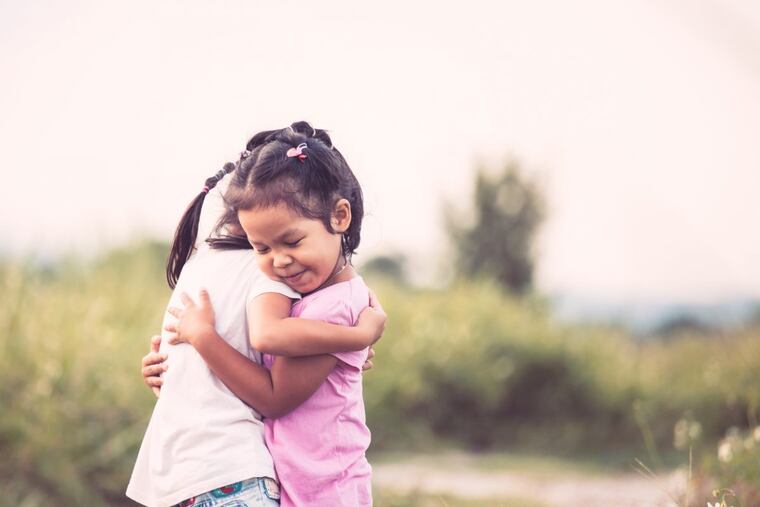Should we discourage children from having a best friend?
There appears to be an emerging trend of banning "best friends" among European schools and some American school, but is this really possible? Here's how parents can help their child understand friendships as they get older.

There appears to be an emerging trend of banning "best friends" among European schools and some American schools. This fall, Prince George was in the news attending his first day of preschool. Of note, it was revealed that the school discouraged children from having a "best friend." But is this really possible?
I was intrigued as I have been conflicted about the notion of my own young children having a "best friend". Friends have been important in my life, and I am grateful for those friends. But as a psychologist, I also know that depending on where children are developmentally, friendships can mean different things to different children.
Recent research suggests that teenagers' increased time on social media is associated with increase in depression and anxiety. In a time when it's so easy for our kids to make "friends" online, I question whether some of that rise in depression and anxiety may be due to a lack of experience in developing those real, meaningful friendships.
While it may be difficult to discourage the idea of having a best friend, parents can play a role in determining if their child is developing friendships appropriately. Noted child psychologist Robert Selman, outlined the following stages of friendship years ago, which may be helpful.
One-way assistance and fair-weather cooperation: During these stages of friendship, which usually occur during elementary school, a child may have friends that consistently engage in activities that he or she likes, or are always helpful to him or her.
Mutually-shared relationships: Occurring during middle school and high school, this stage involves more relationship building and reciprocity. Children have friends that they share emotional experiences with, and confide in. At times these relationships can become emotionally intense and can exclude others.
It's important to remember that these stages are typical for most children, but a teenager could have a friend that is a "fair weather" friend or an older child in elementary school can start to have a friend based on reciprocity.
So, should your child have a "best friend"? Here are some ways to determine if it's appropriate for your child:
Consider where your children are developmentally with friends, and encourage them to talk to you about their friendships. Ask your children questions about their friends and why they have chosen them as friends.
Let them know that they will have many friendships across their lives and that is OK. Smaller children may recover quickly from a friendship loss, but a teenager may experience grief and an intense emotional reaction in response to the loss of a friend.
Define friends for your children as people who enhance their life, but also explain that they have to in turn enhance the lives of their friends, through support and encouragement.
Be aware of potential toxic friendships. If a child is consistently feeling bad after interactions with friends, it is important to discuss it. Sometimes role play is a great way to understand some of the interactions children may be having with their friends and give them the language to navigate friendships.
Finally, encourage friendships. Get kids off of their screens and social media, and support and encourage them to establish and maintain close meaningful friendships. Model this for your children with your own friends. And practice with them the skills to navigate and communicate complex social relationships.
As parents, we all want our kids to have friends—whether those are momentary friends, or lifelong ones. And we want our children to be accepted and learn to develop meaningful relationships that extend past text messaging and social media. All the "friends" and followers in the world can't take the place of real and deeply fulfilling relationships throughout a lifetime.